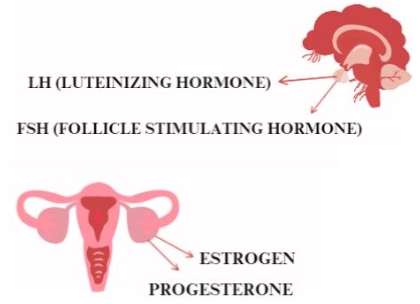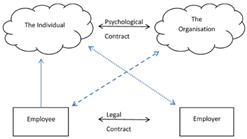Social acceptance of people with chronic diseases
Abstract
The discussion concerns social acceptance of people with chronic diseases, covering the definition of acceptance, its determinants, stereotypes, and groups of diseases that most often face social reluctance. Social acceptance is a key element of healthy social functioning and implies agreement that people with chronic diseases exist, are respected and treated equally with healthy people. It is a process dependent on education, personal experience, social support and culture. Research indicates that people with mental illness, HIV/AIDS, skin diseases and obesity often experience stigma and discrimination. In particular, people with mental illnesses face negative stereotypes, such as being seen as dangerous and unable to function in society. People living with HIV/AIDS are often victims of social ostracism due to fear of infection and moral judgments. Skin diseases such as psoriasis and obesity also lead to social isolation and discrimination. Another group is people with cancer, who often experience social resentment due to fear, ignorance and stereotypes associated with the disease. Social education and psychological and social support are key to reducing stigma and improving the quality of life for these people. Practical measures to increase social acceptance include: educational programs, media campaigns, psychological support, legislative changes, and local and community initiatives. All of these activities can help reduce stigma and discrimination against people with chronic diseases, promoting greater empathy and understanding in society.
References
Albrecht, G. L., & Devlieger, P. J. (1999). The disability paradox: High quality of life against all odds. Social Science & Medicine, 48(8), 977–988.
Angermeyer, M. C., & Dietrich, S. (2006). Public beliefs about and attitudes towards people with mental illness: A review of population studies. Acta Psychiatrica Scandinavica, 113(3), 163–179. https://doi.org/10.1111/j.1600-0447.2005.00699.x
Chambers, S. K., Dunn, J., Occhipinti, S., et al. (2012). A systematic review of the impact of stigma and nihilism on lung cancer outcomes. BMC Cancer, 12(1). https://doi.org/10.1186/1471-2407-12-184
Corrigan, P. W., & Watson, A. C. (2002). Understanding the impact of stigma on people with mental illness. World Psychiatry, 1(1), 16–20.
Corrigan, P. W., Edwards, A. B., Green, A., et al. (2001). Prejudice, Social Distance, and Familiarity with Mental Illness. Schizophrenia Bulletin, 27(2), 219–225. https://doi.org/10.1093/oxfordjournals.schbul.a006868
Else-Quest, N. M., LoConte, N. K., Schiller, J. H., et al. (2009). Perceived stigma, self-blame, and adjustment among lung, breast and prostate cancer patients. Psychology & Health, 24(8), 949–964. https://doi.org/10.1080/08870440802074664
Fisher, J. D., Fisher, W. A., Amico, K. R., et al. (2003). An information-motivation-behavioral skills model of adherence to antiretroviral therapy. Health Psychology, 25(4), 462–473. https://doi.org/10.1037/0278-6133.25.4.462
Ginsburg, I. H., & Link, B. G. (1989). Feelings of stigmatization in patients with psoriasis. Journal of the American Academy of Dermatology, 20(1), 53–63.
Goffman, E. (1963). Stigma: Notes on the Management of Spoiled Identity. Prentice-Hall.
Herek, G. M. (1999). AIDS and stigma. American Behavioral Scientist, 42(7), 1106–1116.
Lebel, S., & Devins, G. M. (2008). Stigma in cancer patients whose behavior may have contributed to their disease. Future Oncology, 4(5), 717–733.
National Psoriasis Foundation. (2020). Psoriasis statistics. Available online: https://www.psoriasis.org/psoriasis-statistics/ (accessed on 21 June 2024).
Puhl, R. M., & Heuer, C. A. (2009). The stigma of obesity: A review and update. Obesity, 17(5), 941–964.
Thoits, P. A. (2011). Mechanisms linking social ties and support to physical and mental health. Journal of Health and Social Behavior, 52(2), 145–161.
UNAIDS. (2020). Global HIV & AIDS statistics—2020 fact sheet. Available online: https://www.unaids.org/en/resources/fact-sheet (accessed on 21 June 2024).
Wakefield, C. E., Olver, I. N., Whitford, H. S., & Pittman, K. (2016). Support after lung cancer diagnosis: perceptions from Australian cancer support groups. European Journal of Cancer Care, 25(3), 356–366.
World Health Organization. (2017). Obesity and overweight. Available online: https://www.who.int/news-room/fact-sheets/detail/obesity-and-overweight (accessed on 21 June 2024).
Copyright (c) 2024 Paweł Juraszek, Mateusz Grajek

This work is licensed under a Creative Commons Attribution 4.0 International License.









